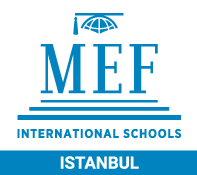The focus of P.S.H.E. (Personal, Social and Health Education) is the students’ overall wellbeing. It includes social, cognitive, emotional and physical development of the students. PSHE is integral to teaching and learning in the PYP and is embodied in the IB learner profile that permeates the programme and represents the qualities of internationally minded students and effective lifelong learners. Although in the PYP, all teachers are PSHE teachers, we also have PSHE lessons at MEF IS. Here at MEF IS, a PSPE scope and sequence is followed which focuses on the Identity and Interaction Strands.
In the Identity Strand, we focus on an understanding of our own beliefs, values, attitudes, experiences and feelings and how they shape us; the impact of cultural influences; the recognition of strengths, limitations and challenges as well as the ability to cope successfully with situations of change and adversity; how the learner’s concept of self and feelings of self-worth affect his or her approach to learning and how he or she interacts with others.
In the Interaction Strand, we focus on an understanding of how an individual interacts with other people, other living things and the wider world; behaviours, rights and responsibilities of individuals in their relationships with others, communities, society and the world around them; the awareness and understanding of similarities and differences; an appreciation of the environment and an understanding of, and commitment to, humankind’s responsibility as custodians of the Earth for future generations.
PSHE is taught from Preschool to Grade 5 in MEF IS primary school. The PYP Learner Profile Attributes are promoted in the lessons. There are times when the PSHE lessons are directly integrated into the IB PYP Units of Inquiry, and other times when they are taught as stand-alone units.
In the early years, the counselor’s priority is developing a sense of belongingness in the first few months. PSHE lessons integrate music, art, drama and play to improve learners’ social, emotional, cognitive and physical development. PSHE lessons promote students’ communication skills, thinking skills, social skills and self management skills. Supporting children’s self worth and fine motor skills are also part of the program to prepare them for primary school. The counselor observes, monitors and interacts with the children to make sure that they grow and develop socially, emotionally, cognitively and physically at each stage of development.



